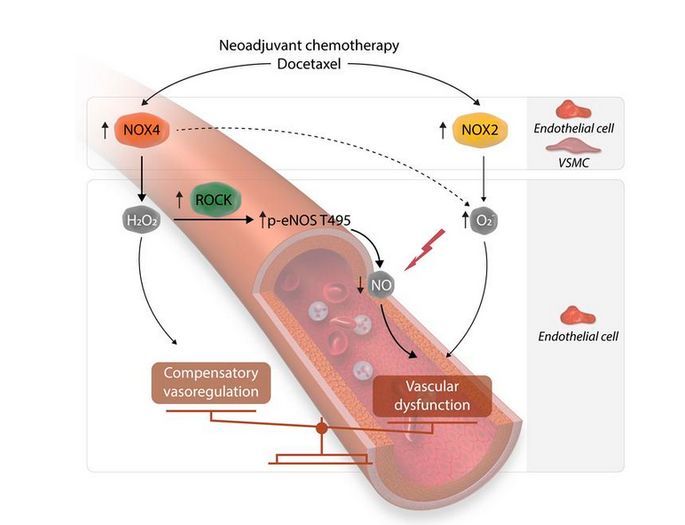
The latest issue of one of the leading medical journals, the Journal of Clinical Investigation, features a paper by a team from the Jagiellonian University Medical College led by Prof. Tomasz Guzik and Prof. Tomasz Grodzicki. In the paper, the researchers discuss how breast cancer chemotherapy may cause vascular damage, explaining how survivors of breast cancer most frequently pass away due to cardiovascular diseases.
The study is the result of a close collaboration between the Department of Translational Medicine of the JU MC Chair in Internal Medicine and Agricultural Medicine and oncologists, surgeons and specialists in general and vascular medicine working at the JU Medical College and University Hospital in Kraków. When examining the vascular system of women who have been treated with chemotherapy prior to mastectomy, the researchers observed serious dysfunctions of vascular endothelium, which greatly affects the health of the circulatory system. They have speculated that this dysfunction is chiefly caused by one of drugs used to fight breast cancer: docetaxel; a theory which was later proved in a series of experiments that allowed them to trace the molecular mechanisms of the condition. The dysfunction was accompanied by increased blood pressure.
The paper Breast cancer chemotherapy induces vascular dysfunction and hypertension through NOX4 dependent mechanism, the first author of which is Dr Piotr Szczepaniak from the JU MC Chair in Internal Medicine and Agricultural Medicine, proves that after chemotherapy blood vessels cease to produce an important mediator, nitric oxide, instead producing the potentially detrimental hydrogen peroxide. Hydrogen peroxide stimulates a number of pathological changes in the blood vessels, which further reduces the production of nitric oxide. The enzyme that bears the most responsibility for this is the NADPH Nox4 oxidase, which produces free radicals.
These observations may help in designing future therapies. Further clinical research is required to test the safety and effectiveness of resulting treatments in preventing increased risk of infarctions, hypertension and other cardiovascular diseases in breast cancer survivors.





